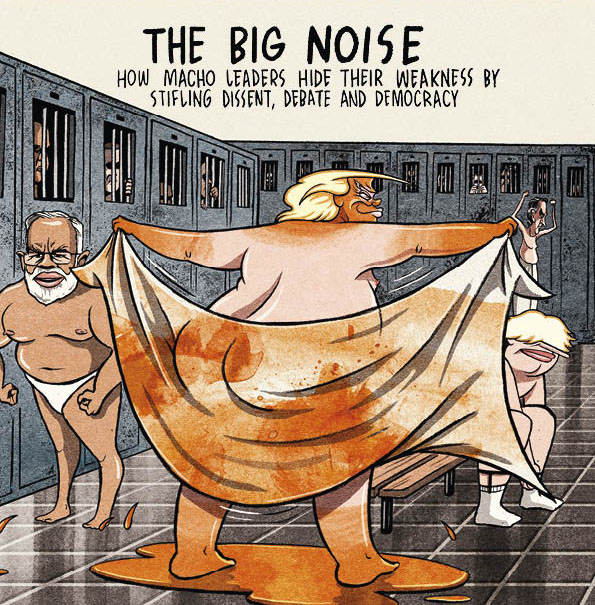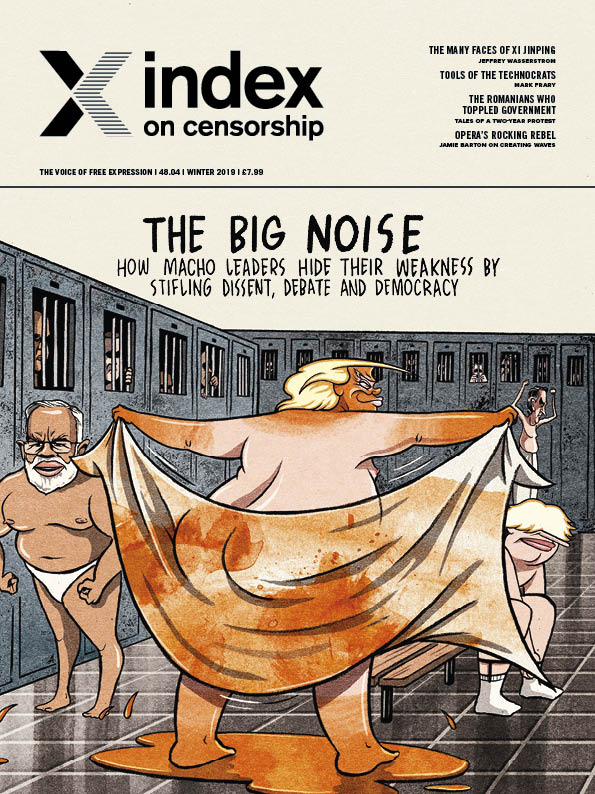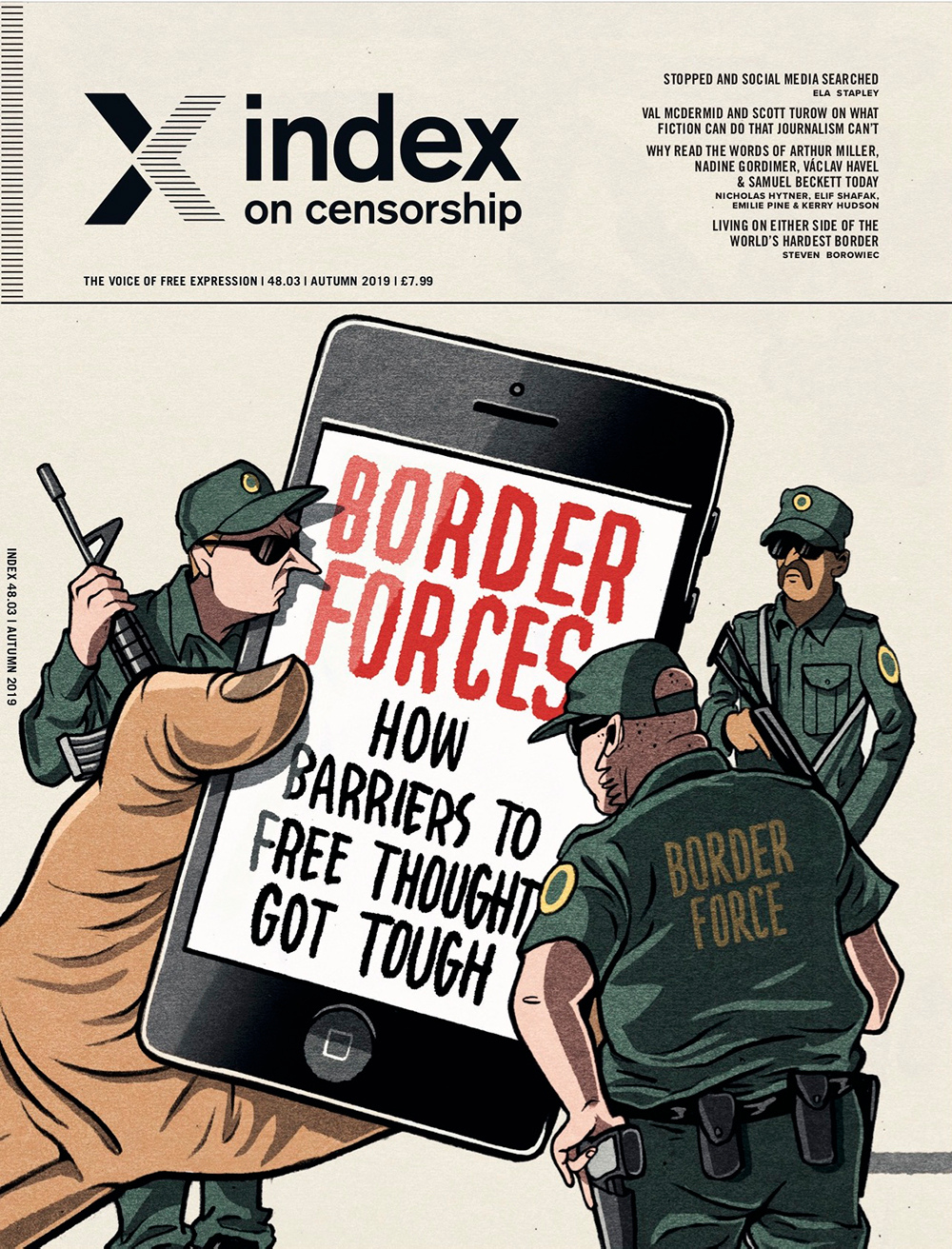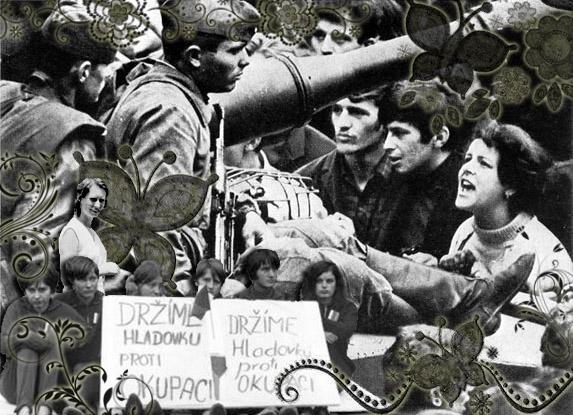Generar noticias locales por ordenador es una práctica habitual. Mark Frary plantea si la automatización es la única manera que tiene la industria de sobrevivir.


Generar noticias locales por ordenador es una práctica habitual. Mark Frary plantea si la automatización es la única manera que tiene la industria de sobrevivir.

The winter 2019 Index on Censorship magazine reports on how macho male leaders around the world are silencing their critics through attacking the media, censoring and spreading disinformation.

Take our quiz to find out if you can tell one macho man from another from some of their more controversial quotes.

The winter Index on Censorship magazine podcast with Richard Hine (@realdonalddrumpf), Leonardo Bianchi, Patricia Campos Mello and Viktoria Serdült explores the battles journalists and citizens face under macho leaders determined to silence people

The winter 2019 edition of Index on Censorship magazine looks at how the current macho world leaders are hiding their weaknesses by crushing dissent

We are living in the age of the macho leaders. All around the world, these so called “strong men” have stormed the polls and are coming to power. They are being voted in democratically yes, but what they stand for is disastrous for democracy. Not only do they have little time for free speech, their entire image is often constructed around a very delicate type of masculinity that does not accept criticism or dissent. This is what we discuss in the winter 2019 issue of Index on Censorship magazine. In this issue Rappler news editor Miriam Grace Go writes about how the president of the Philippines, Rodrigo Duterte, tries to position himself as the man by being as foul-mouthed as possible. If you’re a critical journalist – and especially a woman journalist – you can expect vitriol from him. Indian journalist Somak Goshal reports on how Narenda Modi presents an image of being both the guy next door, as well as a tough guy – and he’s got a large following to ensure his message gets across, come what may. And Stefano Pozzebon talks to journalists in Brazil who are right in the firing line of Jair Bolsonaro’s vicious attacks on the media. Meanwhile Mark Frary talks about the tools that autocrats are using to crush dissent and Caroline Lees looks at the smears that are becoming commonplace as a tactic to silence journalists. We also publish a poem from Hong Kong writer Tammy Lai-ming Ho, which addresses the current protests engulfing the city, plus two short stories written exclusively for the magazine by Kaya Genç and Jonathan Tel. Also Rob Sears creates a handbook for the modern dictator.

Index on Censorship magazine editors Jemimah Steinfeld and Rachael Jolley discuss the latest issues on freedom of expression at the border

A reading list of articles about challenges to the right to protest from the Index archives

A reading list of articles about censorship in Spain from the Index archives

“Put your hand up if you’re concerned at the moment about facial recognition”
A quarterly journal set up in 1972, Index on Censorship magazine has published oppressed writers and refused to be silenced across hundreds of issues.
The brainchild of the poet Stephen Spender, and translator Michael Scammell, the magazine’s very first issue included a never-before-published poem, written while serving a sentence in a labour camp, by the Soviet dissident Aleksandr Solzhenitsyn, who went on to win a Nobel prize later that year.
The magazine continued to be a thorn in the side of Soviet censors, but its scope was far wider. From the beginning, Index declared its mission to stand up for free expression as a fundamental human right for people everywhere – it was particularly vocal in its coverage of the oppressive military regimes of southern Europe and Latin America but was also clear that freedom of expression was not only a problem in faraway dictatorships. The winter 1979 issue, for example, reported on a controversy in the United States in which the Public Broadcasting Service had heavily edited a documentary about racism in Britain and then gone to court attempting to prevent screenings of the original version. Learn more.